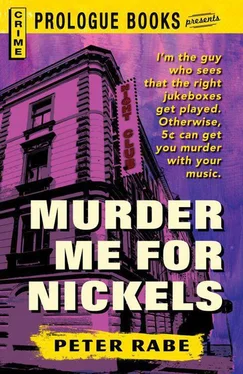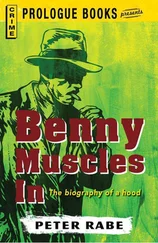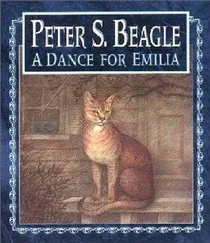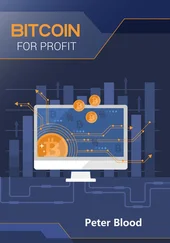Peter Rabe - Murder Me for Nickels
Здесь есть возможность читать онлайн «Peter Rabe - Murder Me for Nickels» весь текст электронной книги совершенно бесплатно (целиком полную версию без сокращений). В некоторых случаях можно слушать аудио, скачать через торрент в формате fb2 и присутствует краткое содержание. Жанр: Криминальный детектив, на английском языке. Описание произведения, (предисловие) а так же отзывы посетителей доступны на портале библиотеки ЛибКат.
- Название:Murder Me for Nickels
- Автор:
- Жанр:
- Год:неизвестен
- ISBN:нет данных
- Рейтинг книги:4 / 5. Голосов: 1
-
Избранное:Добавить в избранное
- Отзывы:
-
Ваша оценка:
- 80
- 1
- 2
- 3
- 4
- 5
Murder Me for Nickels: краткое содержание, описание и аннотация
Предлагаем к чтению аннотацию, описание, краткое содержание или предисловие (зависит от того, что написал сам автор книги «Murder Me for Nickels»). Если вы не нашли необходимую информацию о книге — напишите в комментариях, мы постараемся отыскать её.
Murder Me for Nickels — читать онлайн бесплатно полную книгу (весь текст) целиком
Ниже представлен текст книги, разбитый по страницам. Система сохранения места последней прочитанной страницы, позволяет с удобством читать онлайн бесплатно книгу «Murder Me for Nickels», без необходимости каждый раз заново искать на чём Вы остановились. Поставьте закладку, и сможете в любой момент перейти на страницу, на которой закончили чтение.
Интервал:
Закладка:
Peter Rabe
Murder Me for Nickels
Chapter 1
Walter Lippit makes music all over town. For a thirty-mile radius every jukebox makes music because Walter Lippit has put it there. He sets it up, rents it out, keeps it primed, and makes music. Money music. I help to keep up the beat because Lippit’s a friend of mine and because Lippit pays me.
It’s a fast-stepping job, since Walter Lippit doesn’t like too many helpers, but it isn’t often a rat-race kind of day because the outfit has grown up to run sweet and smooth. Though once in a while, by making everyone run around hard, Lippit makes it clear how a big, well-running outfit like his got that way. He pays me, so I run.
When we met he was reworking the juke market for himself. I was doing nothing. I was an agent I had been handling singers, doing publicity for a record hop, all of which sounds fairly busy considering the turnover in that entertainment branch, but it isn’t always so. I had just lost my star client and made a fair pot of money on her switch to a New York-sized agency, which-at the time-left me only odds and ends and boredom. The odds-and-ends clients were a no-talent vocal, for one, and then a combo which was much too demanding for the jukes. You had to listen to it I had respect for their work and soon sent them to somebody else, but I was still pushing the no-talent vocal when I ran into Lippit.
Now, the way you push a no-talent vocal, one way which might make you apt to run into Lippit at the same time, is to try and get discs of your vocal on all the juke machines you can find. I had the ins for it, at the time. I could go to half a dozen of the juke-machine operators and with just a little bit of this and that, they’d place my discs in their machines and you had to listen to my no-talent vocal. And then the d.j.’s would take it up, and that’s how I was an agent.
Except, all of a sudden, there were no longer a half-dozen operators. There was only Lippit.
He didn’t play ball. Why should he? Who was Jack St. Louis? I tried to convince him that Jack St. Louis was an old hand at the record game and that Lippit, the truck driver, should please play ball. Then he threw me out.
So I went to the jobber who supplied the town and the territory with all the discs at that time. I went to him with this and that and a drink for old times sake, and for the next week, suddenly Lippit had no new discs for his machines.
I explained to Lippit how this had come about, how Jack St. Louis would much rather be friends, and Lippit-needing all the help he could get at the time-said, all right, friends, shmends, and paid for his drink and mine.
I dropped the no-talent vocal just about that time, and stayed with Lippit.
I had no special love for my no-talent vocal. But I did have a feeling for Lippit. For the way he said no, for the way he paid for his own drinks, even then, and for the tiger-cat way he had of taking over his jungle. I liked him then and I like him now.
I think my first stop on that morning was the jobber, to remind him he should keep strictly on time with the disc deliveries. (The jobber was always on time.) Next stop was the electric supply place which sold us little wires and solenoids, when Lippit’s machines needed wires and solenoids. I checked in to see if they were keeping their stock up to date should we suddenly need these important etceteras. (They were up to date and we did not need any.) Also that day, I saw a few downtown customers and asked how the service was and if there were any complaints (no complaints); the accountants, to ask how we were doing (fine); two of the banks (also fine). Then back home in the afternoon to change into the tux I had rented because the way this day was going I would not have the time later on, before Walter Lippit’s little party. His parties were no more high class than his work, but he would just say sometimes, “What a fine change in pace going formal some evening,” though this did not change the pace any but just added to it. He would say “tux” as if he had invented the outfit, which was very funny, considering who Lippit was.
I don’t know all about him since pedigrees in an operation like Lippit’s did not very much matter, but once, quite a while back, I think he drove semis. He still says every so often, “There’s just two things makes me sick. The smell of diesels and the smell of greasy spoon diners.”
With that kind of an attitude he didn’t push trucks very long. Though he stayed in the union. He must have picked a good one, and at the right time, because he never pushed trucks any more but told others to do it. That was on the east coast, Boston-New York, though he never mentions much more than to say it was east. “I used to be active out east,” was his phrase. And I think he knew a hood or two and I know he learned a trick or two because when he showed up here he had money to start with and an eye for organization.
I don’t think he was ever a hood-which is almost being a company man-and I never saw him act as if he could be hired.
He showed up here and felt pained, was his phrase, at the state of the union. The truckers on city deliveries were holding their own, especially with the ten or twelve men who owned or ran all the jukes in the area. Those jukes need a lot of delivering, what with new sets of discs every week. “This gave me a pain,” he had said, “which is why I took an interest.”
It was organizational interest (his phrase again), and as a fact, it fit. All those juke owners, for example, in a while just disappeared. With Lippit telling the truckers how to truck, all those juke owners-their deliveries faulty-reaped only the spottiest income. What it came down to was that Lippit sort of gathered all of them up, beat them down, mashed them all into one, and what he ended up with was his. Thirty square miles of nickels were his, and they have been having babies ever since.
All this to make clear then, that Walter Lippit could well afford a tuxedo and parties like that, though I don’t think there was anyone who really spoke proper English at his little parties, except maybe his lawyer. And for that matter, Lippit had never worn anything tux-like before, or at least not until this Patricia came along. Otherwise, very nice though, this Pat.
So I put on the tux, for the change in pace which made Lippit so happy, and got back on the rounds which hadn’t been finished. Morry’s 9-Alley Emporium was next, and did he have any complaints. He always did, but I went there anyway.
The big place smelled of wax and of bowling shoes, and there were just two or three very slow customers. Even though it was getting dark Morry had not yet turned on all the lights. When it came to money and overhead, Morry had always been constipated.
He was on the other side of the snack-bar counter measuring water into the coffee urn. He had a coffee formula which would not rob you of sleep. I sat down on a stool and said, “Hi, Morry.”
He looked around; his face stayed sour. He turned back to the urn and finished his mixture. After that he came to the counter and looked at me.
“Funeral?” he said.
“No. I just naturally always wear a tux when I go to a bowling alley.”
“Oh.”
This showed how constipated he was when it came to humor and jokes. He said nothing else. No complaints, nothing. Morry always had complaints which was one of the reasons I dropped in there so often. But he turned away and watched the coffee-urn gauge and the urn as it filled up with a very light-colored liquid.
He said, “You wanna cup of coffee?”
“Are you mad?”
He shrugged and said nothing else. Maybe, I thought, there was no complaint this time, about records coming in late, wrong records coming in all the time, about coins jamming and lights blinking and using up too much electricity. It was time, maybe, to bring up the other reason why I dropped in on Morry more often than not Morry had only one of our machines in his place. It was the razzmatazz kind, blinking red, white and blue, and stood next to the lunch counter. Further on, through a glass door, Morry had a bar and grill attached to his alley, but he had no jukebox in there.
Читать дальшеИнтервал:
Закладка:
Похожие книги на «Murder Me for Nickels»
Представляем Вашему вниманию похожие книги на «Murder Me for Nickels» списком для выбора. Мы отобрали схожую по названию и смыслу литературу в надежде предоставить читателям больше вариантов отыскать новые, интересные, ещё непрочитанные произведения.
Обсуждение, отзывы о книге «Murder Me for Nickels» и просто собственные мнения читателей. Оставьте ваши комментарии, напишите, что Вы думаете о произведении, его смысле или главных героях. Укажите что конкретно понравилось, а что нет, и почему Вы так считаете.












